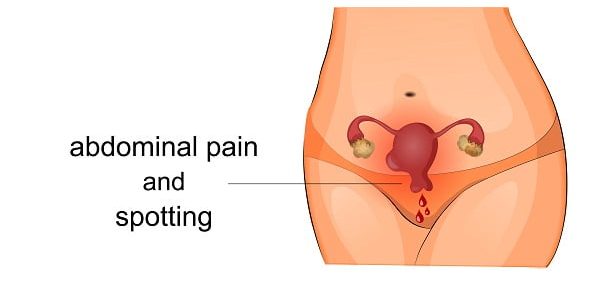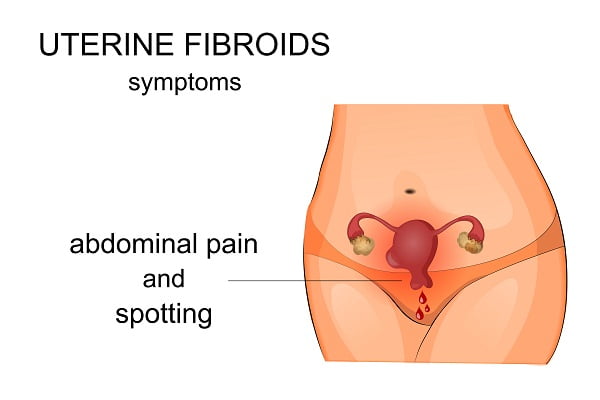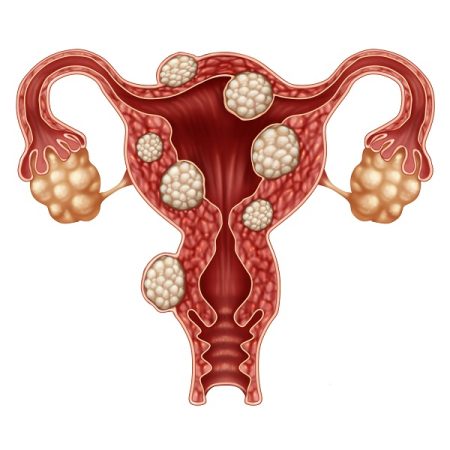Complications and Signs and Symptoms of Uterine Fibroids
- Updated on: Jul 10, 2024
- 3 min Read
- Published on Sep 26, 2019


Uterine Fibroids Symptoms
Usually women with uterine fibroids develop mild or no symptoms which do not require any therapy. The symptoms can extend slowly and progressively over many years or rapidly over several months.
These are usually detected during a routine pelvic check. Treatment for uterine fibroids depends on your symptoms.
The commonly seen symptoms include:
Severe menstrual bleeding
This is termed as menorrhagia, and is usually seen in women with fibroids. Occasionally, blood clots are also seen with bleeding. Long-lasting cycles of bleeding and prolonged monthly periods are common. This can have a serious side effect over time.
Heavy menstrual bleeding is the most commonly observed symptom of fibroids. Severe menstrual cramping is also observed.
Pressure on the bladder
This may give rise to a sense to urinate urgently and frequently.
Pressure on the rectum
This can cause constipation.
Pelvic pressure and pain
As the fibroids grow in size pressure is developed in the neighbouring organs resulting in severe pain. People usually get a feeling of fullness in the lower abdomen along with lower abdominal pain.
Pain and pressure are caused not only due to the size but also because of the location of fibroids. Back aches and leg pains are also common. Swelling or enlargements of the abdomen are seen too.
Size increase around the waist and change in abdominal contour
Due to significant rise in weight, women have to purchase larger size clothes.
Infertility
It may result in difficulty to become pregnant. Other complications such as placental abruption and premature labour are seen too.
Pelvic mass
In a routine check up, your physician can detect it. A firm mass develops in the centre of pelvis.
Anaemia
Fibroids which are small usually are more prone to cause abnormally heavy bleeding than larger ones. Prolonged and severe anaemia that is not cured by dietary changes and iron supplements may give rise to heart problems.
Complications of Uterine Fibroids
Based on the location of the fibroids various complications can arise. The possible uterine fibroids complications are:
- Intermittent or continuous bleedings
- Pain, nausea or fever
- Dysuria
- Constipation due to chronic bladder and bowel spasms
- Peritonitis
- Infertility due to metro and menorrhagia
- Effect on pregnancy: It can cause delivery complications and risks.
- Anaemia: This can result due to severe bleeding.
- Urinary tract infection: Urinary tract infections may occur due to larger-sized fibroids. The pressure developed on urethras may cause urinary blockage and kidney damage resulting in chronic kidney diseases, in some cases.
- Abdominal Swelling: Larger sized uterine fibroids may result in swelling thereby making it difficult to perform a pelvic scan.
- Uterine Cancer: Usually fibroids are non malignant. Large-sized fibroids in a premenopausal woman or for that matter even slowly emerging fibroids in a postmenopausal woman need assessment to eliminate the possibility of being cancerous.
When to see a doctor
Women who do develop symptoms usually find uterine fibroids hard to live with. If any of the following symptoms are seen, one needs to fix an appointment with the doctor.
- Consistent pelvic pain or heaviness in the lower abdomen or pelvis.
- Heavy, long-lasting and painful periods. This is initially pain-free but becomes painful over few months.
- Frequent painful urination or an inability to control the flow of urine.
- A change in the duration of your menstrual cycle over few months of menstrual cycles.
- Chronic constipation.
- Difficulty in getting pregnant.












